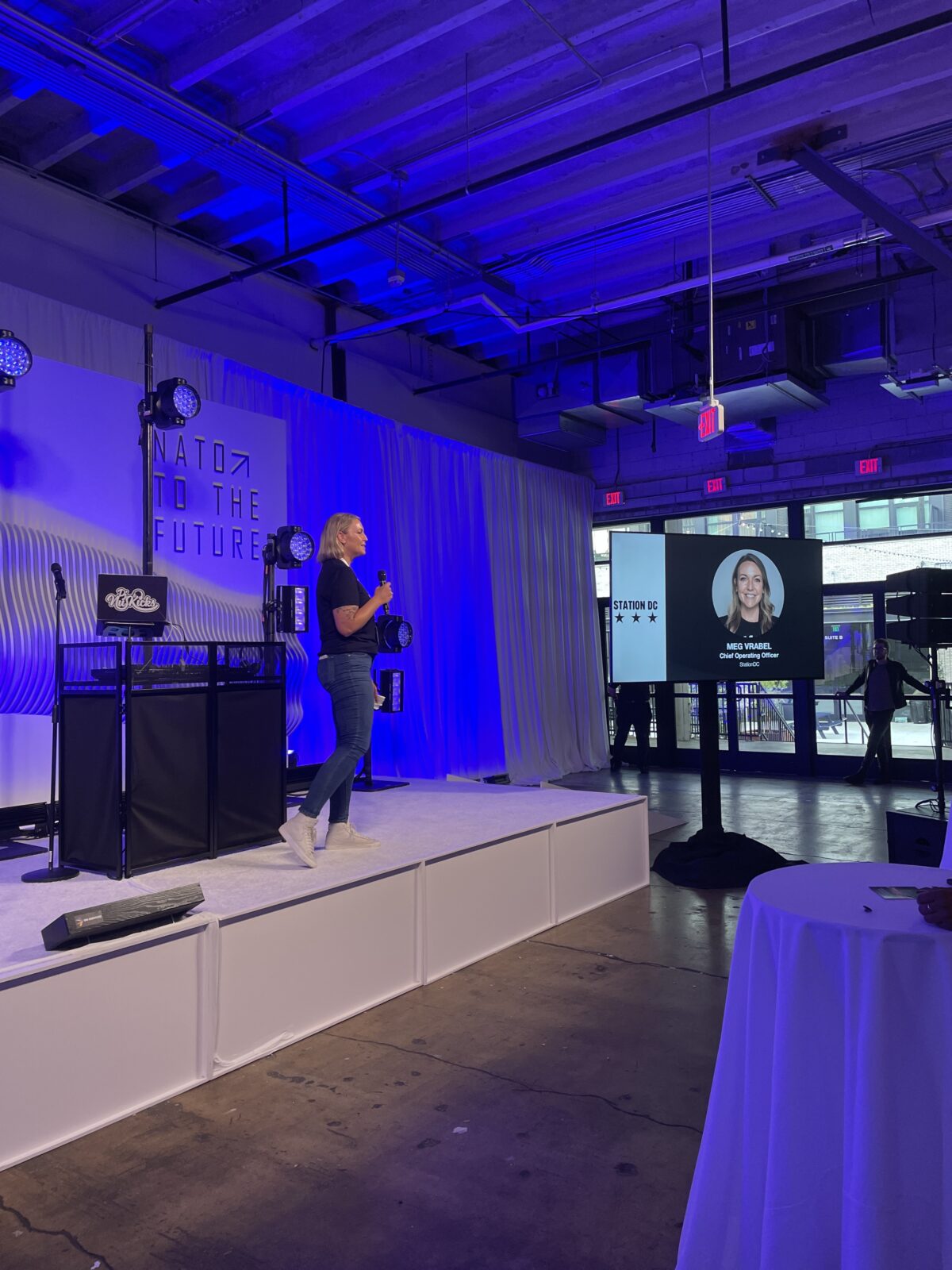The new hub, dubbed Station DC, will be a “landing pad for entrepreneurs,” said Meg Vrabel, the COO of the Austin-headquartered Capital Factory. The goal is to have the hub connect policymakers and leaders in innovative tech, per Vrabel. There will be educational events and networking opportunities to link investors, mentors and decision-makers in the nation’s capital.
The DC Council passed legislation to grant $2 million to support the new hub in NoMa, and those funds will be dispersed over two years. Vrabel said the organizers plan to open Station DC’s doors in the second quarter of 2025, in a 10,000-square-foot space above the restaurant Pastis on 4th Street.
This is the first location that Capital Factory, which connects startups to resources like mentoring, investors and clients, has opened outside of Texas.
Vrabel stressed the importance of boosting dual-use innovation, meaning tech with both commercial and government applications, through the hub. Station DC will be open to all, but emphasize innovators based in the DMV and possibly further out in the Mid-Atlantic region, Vrabel said.
“We’ve been very successful in Texas, supporting an ecosystem of entrepreneurs there,” Vrabel told Technical.ly at Station DC’s launch event on Tuesday. “This is a place that really makes sense for that type of innovation.”
The new hub also has an advisory board of leaders in tech and venture capital, including people from Andreessen Horowitz and the DC-based firm Revolution Ventures.
This isn’t the only recently launched initiative to connect entrepreneurs with policymakers. DC Tech Studio, a new program out of the DC Tech & Venture Coalition, was also established this summer. That initiative kicked off with a six-week program pilot made up of local founders; this iteration culminated in a demo day in late June.
The Station DC launch also took place in conjunction with a micro summit on Tuesday about the future of technology and innovation. Its themes overlapped with the much larger NATO Summit, which took over the district that same week.
Capital Factory cohosted that NATO to the Future event with the newly introduced, tech-focused government relations firm Washington Office, which Vrabel said participates in Station DC to loop in policymakers with innovators.

Meg Vrabel, Capital Factory’s COO, delivers remarks at the Station DC launch party on July 9. (Kaela Roeder/Technical.ly)
Expanding a successful model to DC
Evan Burfield, cofounder of Washington Office and a board member of Station DC, said he’s been advocating for Capital Factory to establish a presence in DC for some time now.
Burfield, a native Washingtonian, has been involved in the DC tech and entrepreneurship scene for decades. He’s also the cofounder of the former DC tech incubator 1776, which merged with Philadelphia-based coworking company Benjamin’s Desk in 2017. The now-closed incubator received a $200,000, one-time grant from the DC government when it was founded in 2013.
1776 shuttered its last DC location in 2021, after closing its Crystal City and 15th Street locations in the prior three years. The affiliated fund 1776 Ventures still exists and is still co-run by Burfield, he said.
Burfield noted two key lessons from his 1776 experience that he’ll take to Station DC. For one, this new hub is structured as a nonprofit, and there’s a long-term partnership established with the government.
Capital Factory has also successfully implemented this type of program in Texas, Burfield noted, and it’s important to focus on what works and being disciplined in continuing that vision. It’s a specific mode to connect the entrepreneurs, technology leaders and policymakers — not necessarily provide a founder a desk, he said.
“This is more about a place where you come because maybe there’s a great event,” he said. “You stay and have two or three meetings, you bump into some people that you know that you want to work with. It’s much more about that, because the world has evolved in so many ways.”
Changing the mindset between government and tech
Burfield recalled that even 10 years ago, the attitude in the venture capital and startup world was to avoid government dealings, as they’re rife with regulation.
While he believes that viewpoint is shifting, Burfield has still felt this need to change up the perspective for a while now. He even published a book about the topic in 2018.
“Startups can’t just be passive recipients of these policies, but they need to be actively engaged in helping to shape them to really take advantage of this,” Burfield said. “DC made all the sense in the world.”Evan Burfield Station DC
Burfield said that the government has emerged as a key source of capital for these innovative startups to carry out research and development — especially those working in emerging technology like AI and quantum.
For example, the federal government passed several programs and bills, including the CHIPS And Science Act passed in 2022, to loop in firms working with these products.
This is a key reason why a new tech hub like Station DC will thrive in the region, he said: a closeness to not only federal government funding programs, including grants and contracts, but also, importantly, people making the policy that impacts startups’ work.
“Rather than just being a recipient of policy,” Burfield said, “we should get the voices of the startups … and just more broadly, the sort of voices of ‘little tech,’ of frontier tech. We’re going to make those voices much more prominently heard in these policy conversations about how we solve problems.”